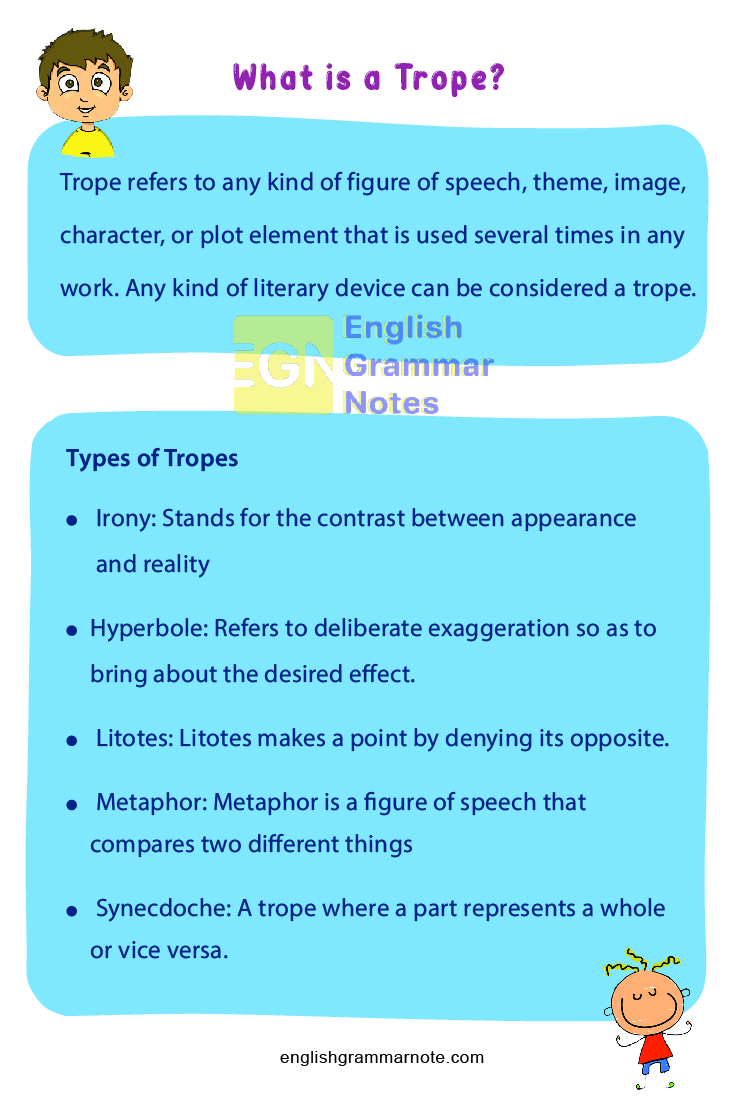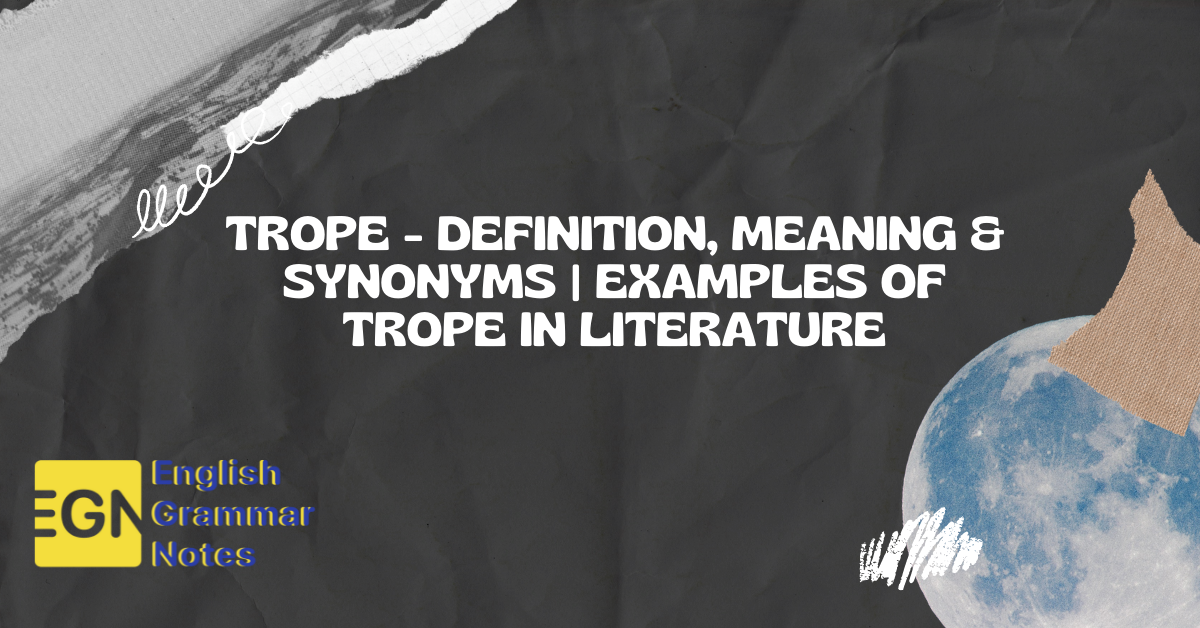A trope is one of the common literary devices used. The word trope has its roots in the Greek word tropos, which means a turn or change of direction. Tropes are used to express the meanings of words differently than their literal meanings. Depending on the meanings tropes can be of different types as well. In this article, you will be introduced to all the essential information about tropes including their definition, common types, common tropes, their significance, etc.
- What is a Trope?
- Types of Tropes
- Common Tropes used in Literature
- Significance of Tropes
- Trope Vs Cliché
- Trope Vs Archetype
- What is a trope?
- What are the different types of Tropes used in literature?
- What are the benefits of using tropes?
- Distinguish between archetypes and tropes?
What is a Trope?
Trope refers to any kind of figure of speech, theme, image, character, or plot element that is used several times in any work. Any kind of literary device can be considered a trope. The word is used to refer to tropes that are widespread such as irony, juxtaposition, metaphor, and hyperbole.
Types of Tropes
Given below are the different types of tropes commonly used in literature:
- Euphemism: A euphemism is a word or expression that replaces another that may seem too blunt or harsh.
- Irony: Stands for the contrast between appearance and reality
- Hyperbole: Refers to deliberate exaggeration so as to bring about the desired effect.
- Litotes: Has the opposite effect of hyperbole. Litotes makes a point by denying its opposite.
- Metaphor: A metaphor is a figure of speech that compares two different things
- Metonymy: This is a common type of trope where a part is used to represent a whole.
- Synecdoche: A trope where a part represents a whole or vice versa.
Common Tropes used in Literature
- The trope of two lovers who belong to two different social classes
- The trope of the protagonist saving a damsel in distress.
- The trope of size defines the strength of a person.
- The trope of feeling of being young forever.
- The association of black with evil characters.
- A long white beard can be considered as the trope of a wise man.
- The ticking of a clock is a trope that suggests the characters are running out of time.
Tropes Examples
Given below is a list containing the most commonly used tropes:
- The love triangle
- The evil one
- Friends to Lovers
- Enemies to lovers
- The trope of second chance
- The trope of forbidden love
- Lost love
- Fake relationships
- The Soul Mates trope
- The conspiracy trope
Struggling to learn the English language right from basics to advanced online? Worry not, here is the perfect guide ie., English Grammar Notes to solve all your English grammar queries.
Significance of Tropes
Tropes are useful in many ways. These include:
- Tropes help to emphasize certain themes and ideas.
- Used to create drama and feeling
- Tropes give additional meaning to what you write.
- Tropes create images in the reader’s mind.
- Tropes engage in a type of comparison and help in easy understanding of a text.

Trope Vs Cliché
Cliché and Tropes are two different terms. Cliché refers to a trope that has been used repeatedly. Since they are overused, clichés typically are associated with a negative connotation.
Trope Vs Archetype
An archetype refers to the original model based on which other works are patterned. One example would be, good triumphs against evil. This is an archetype. On the other hand, tropes refer to recurring themes or ideas in a work. Archetypes are generally universal in nature and never considered to be boring as cliché
Read More:
FAQs on Tropes
Trope refers to any kind of figure of speech, theme, image, character, or plot element that is used several times in any work.
2. What are the different types of Tropes used in literature?
The most common types of tropes used in literature include irony, hyperbole, metaphor, metonymy, litotes, euphemism, etc.
3. What are the benefits of using tropes?
The use of Tropes has several benefits. These include: Tropes add meaning to what you write, add emotion and feeling to a text, help to emphasize certain themes and ideas and create images in the minds of readers.
4. Distinguish between archetypes and tropes?
An archetype refers to the original model based on which other works are patterned. On the other hand, tropes refer to recurring themes or ideas in a work.
Conclusion
Tropes are one of the most effective devices used in literature. Your mastery over a genre is clearly revealed through your use of tropes. The best way to learn how to use tropes is by familiarising yourself with the various types and their appropriate use. With this, you will surely surprise and delight your readers.
